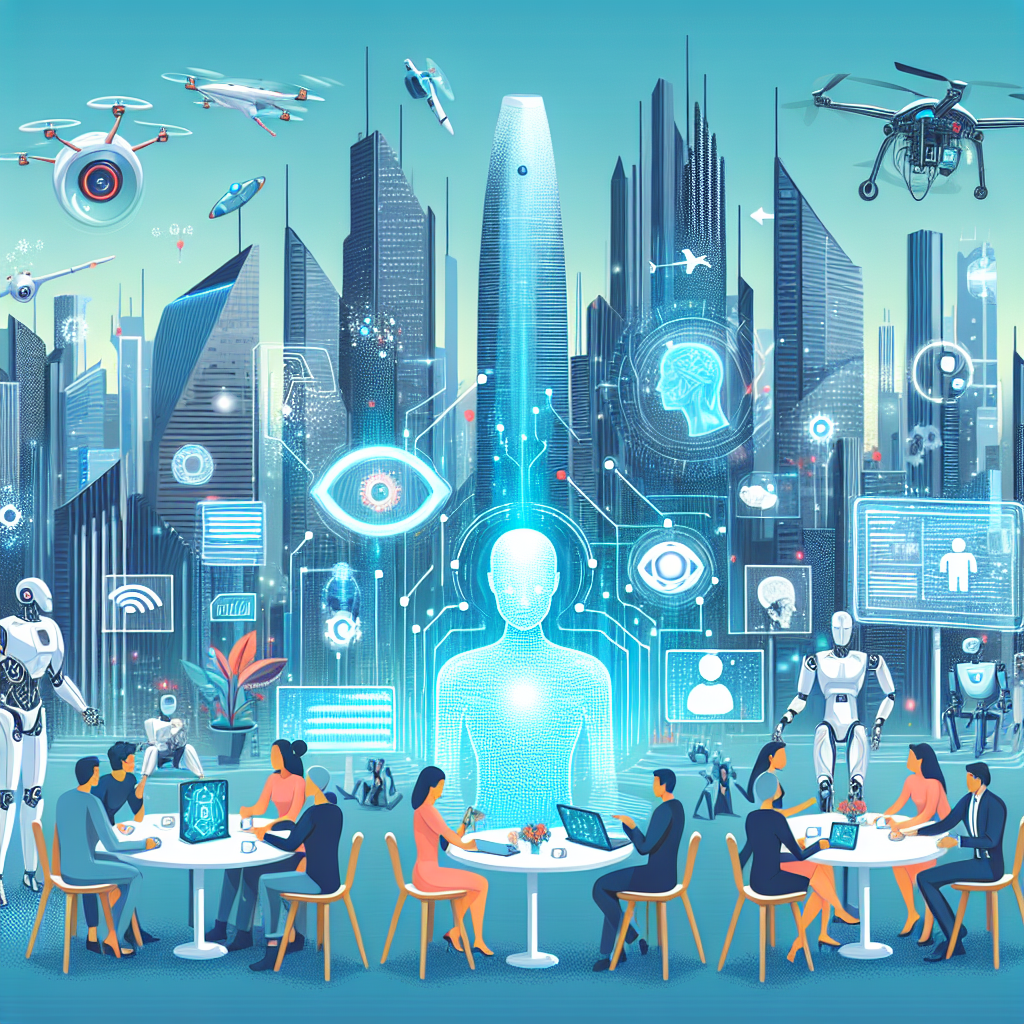Artificial General Intelligence (AGI) is a term used to describe a form of artificial intelligence that possesses the ability to understand, learn, and apply knowledge in a way that is similar to human intelligence. While current AI systems are capable of performing specific tasks or solving specific problems, AGI aims to replicate the breadth and depth of human cognition.
The potential impact of AGI on the future of work and society is a topic of great interest and concern. As AGI technology continues to advance, it is becoming increasingly likely that these systems will play a significant role in shaping the way we live and work in the future. In this article, we will explore the potential impact of AGI on the future of work and society and discuss some of the key questions and concerns surrounding this technology.
Impact on the Job Market
One of the most significant potential impacts of AGI on the future of work is its effect on the job market. As AGI systems become more advanced and capable, they have the potential to automate a wide range of tasks and jobs that are currently performed by humans. This could lead to significant job displacement in many industries, as AGI systems are able to perform tasks more efficiently and accurately than humans.
While some jobs may be eliminated entirely by AGI technology, it is also likely that new jobs will be created as a result of this technology. As AGI systems become more prevalent, there will be a growing demand for individuals with the skills and knowledge necessary to design, build, and maintain these systems. Additionally, there may be new opportunities for individuals to work alongside AGI systems, collaborating with them to perform tasks that require a combination of human and machine intelligence.
Impact on Society
The impact of AGI on society extends beyond the job market. As AGI systems become more advanced, they have the potential to revolutionize a wide range of industries, from healthcare to transportation to finance. For example, AGI systems could be used to analyze large amounts of data in the healthcare industry, leading to more accurate diagnoses and personalized treatment plans. In the transportation industry, AGI systems could be used to improve traffic flow and reduce accidents. In the finance industry, AGI systems could be used to predict market trends and make investment decisions.
However, the widespread adoption of AGI technology also raises a number of ethical and social concerns. For example, there are concerns about the potential for AGI systems to be used for malicious purposes, such as surveillance or warfare. Additionally, there are concerns about the potential for AGI systems to reinforce existing biases and inequalities in society, particularly if they are not designed and implemented in a fair and inclusive manner.
FAQs
Q: Will AGI technology lead to mass unemployment?
A: While it is possible that AGI technology could lead to job displacement in certain industries, it is also likely that new jobs will be created as a result of this technology. Additionally, there may be opportunities for individuals to work alongside AGI systems, collaborating with them to perform tasks that require a combination of human and machine intelligence.
Q: How can we ensure that AGI technology is used ethically and responsibly?
A: Ensuring that AGI technology is used ethically and responsibly will require a combination of regulations, oversight, and collaboration between stakeholders. It will be important for developers, policymakers, and other stakeholders to work together to establish guidelines and best practices for the design and implementation of AGI systems.
Q: What are some potential benefits of AGI technology?
A: Some potential benefits of AGI technology include improved efficiency and accuracy in a wide range of industries, enhanced decision-making capabilities, and the ability to solve complex problems more quickly and effectively. Additionally, AGI technology has the potential to revolutionize healthcare, transportation, finance, and other industries.
In conclusion, the potential impact of AGI on the future of work and society is both exciting and challenging. While AGI technology holds the promise of revolutionizing a wide range of industries and improving our quality of life, it also raises a number of ethical and social concerns that must be addressed. By working together to ensure that AGI technology is used ethically and responsibly, we can harness the full potential of this technology while minimizing its potential risks.

